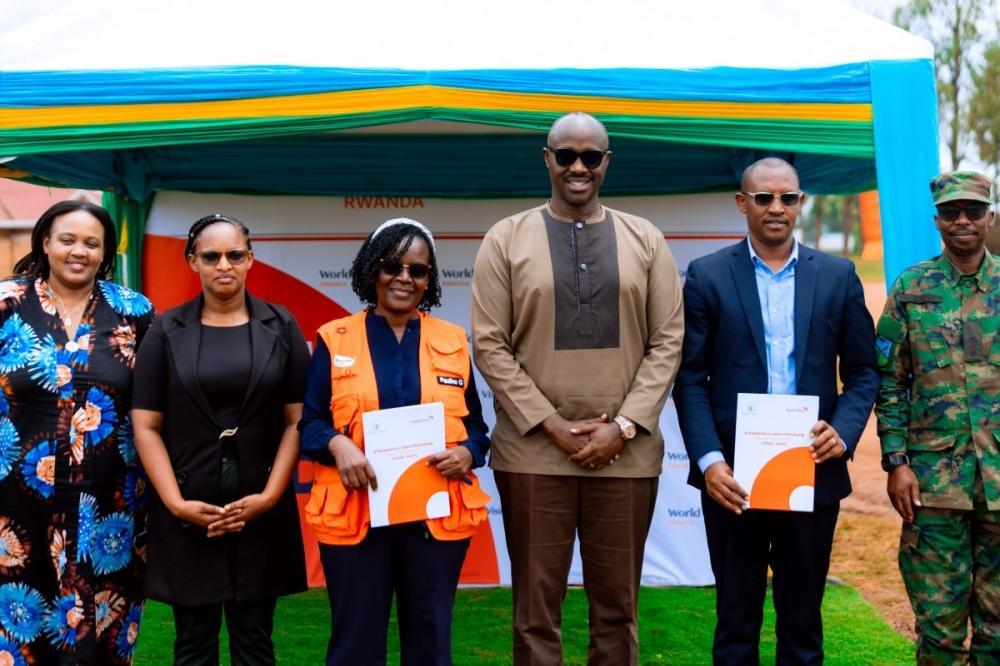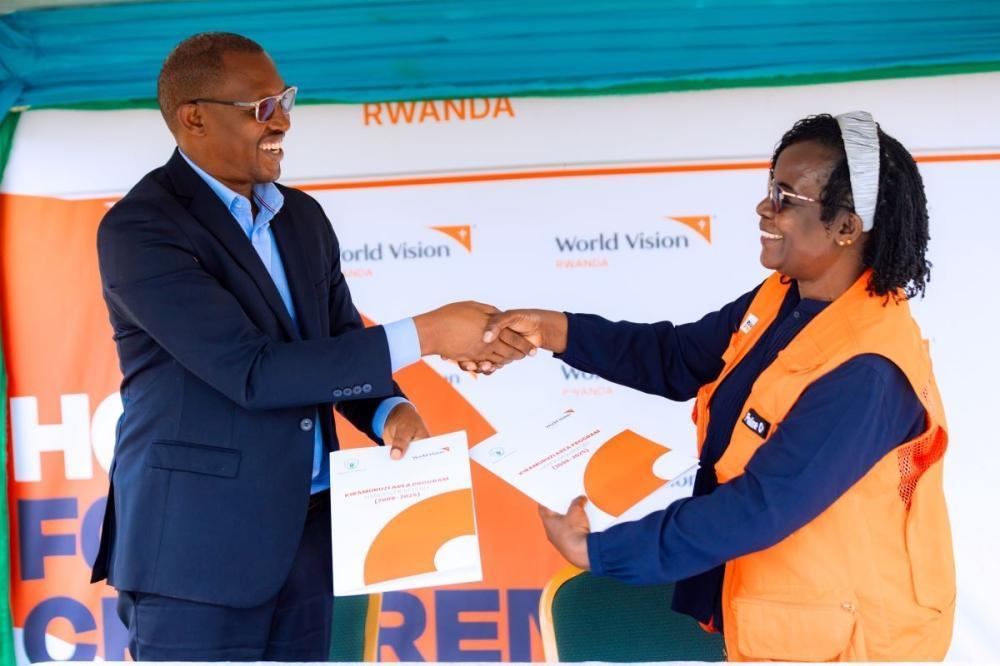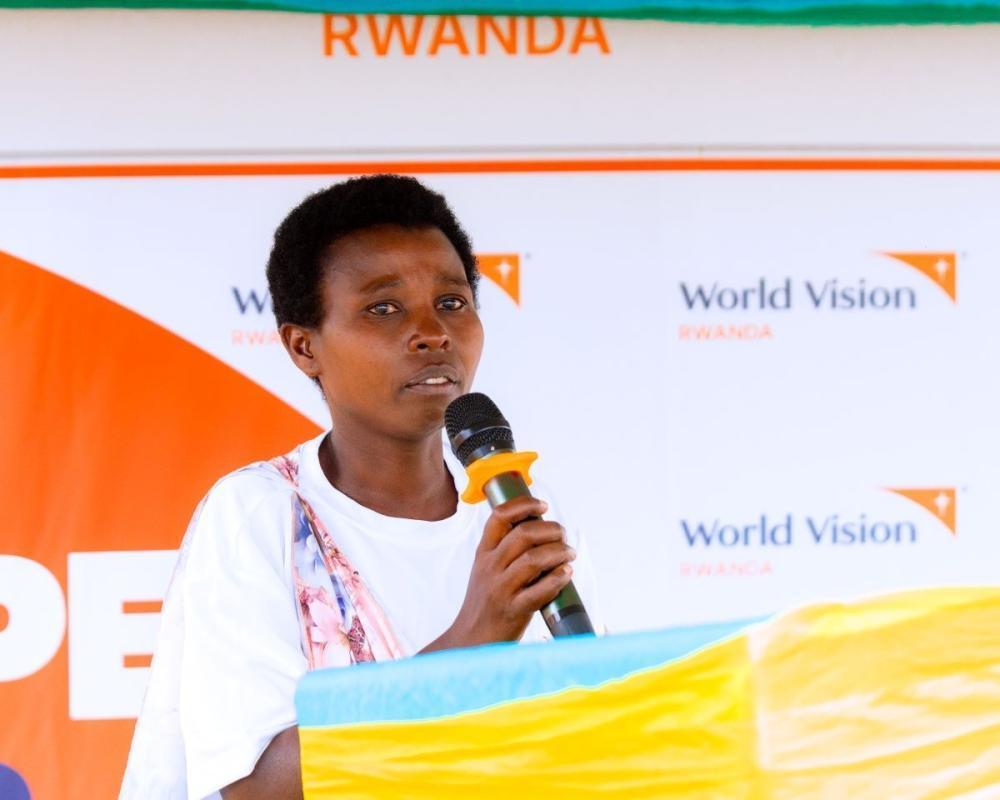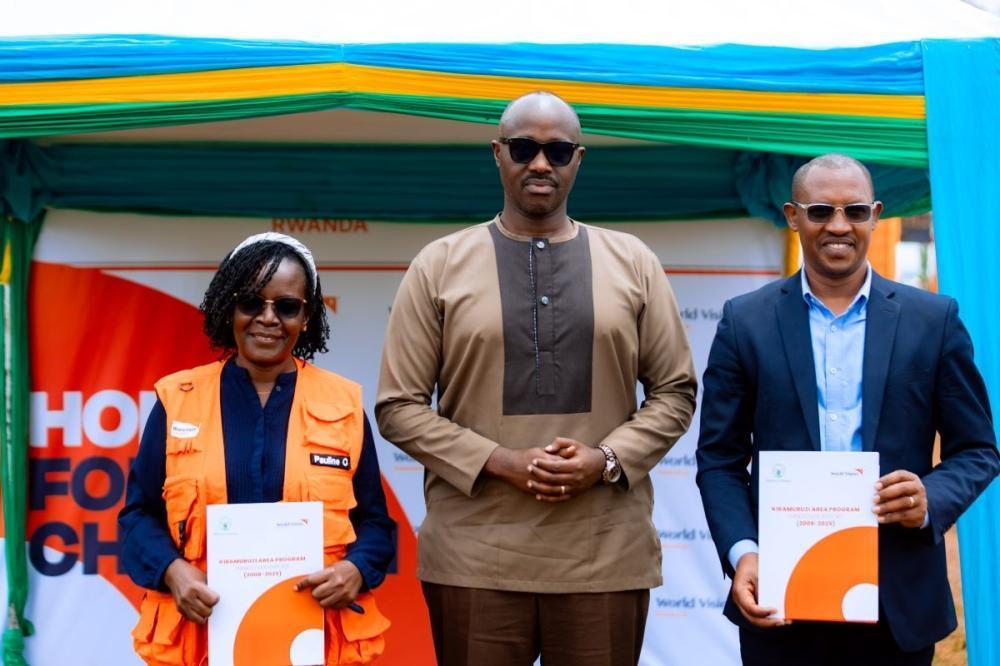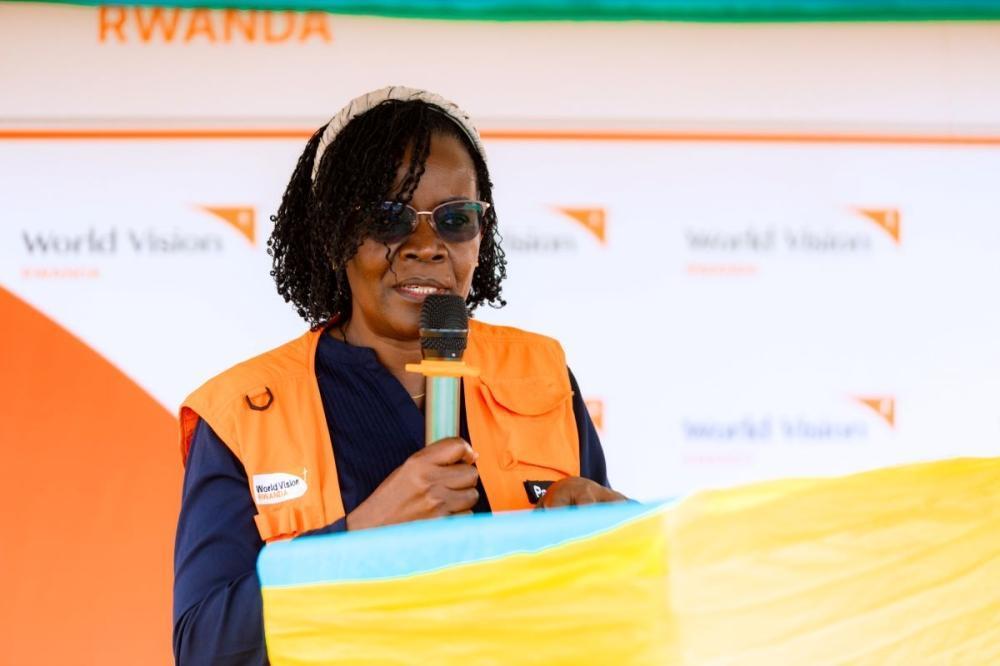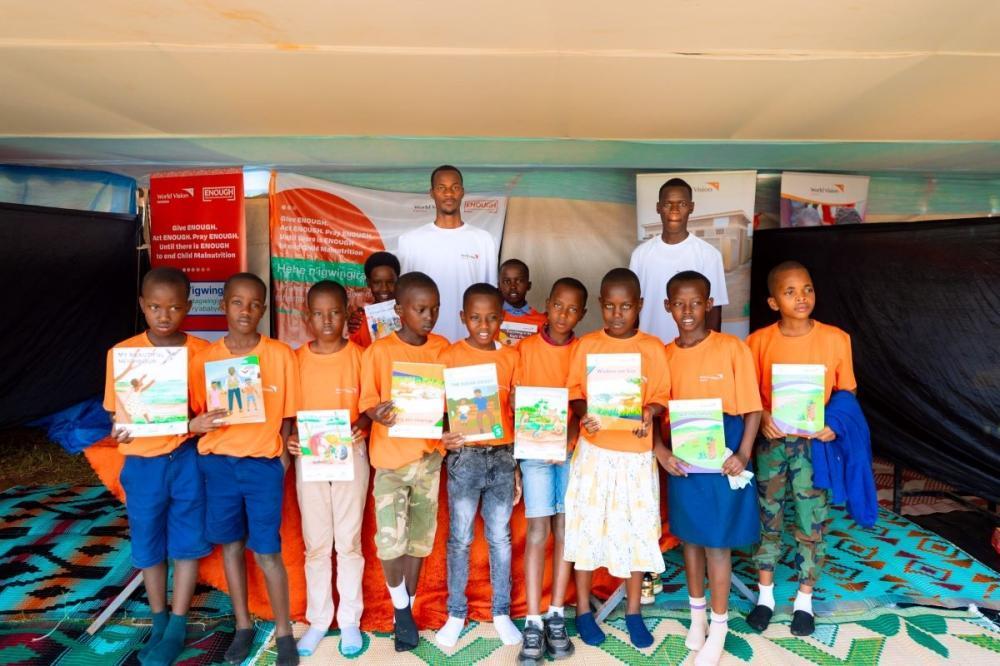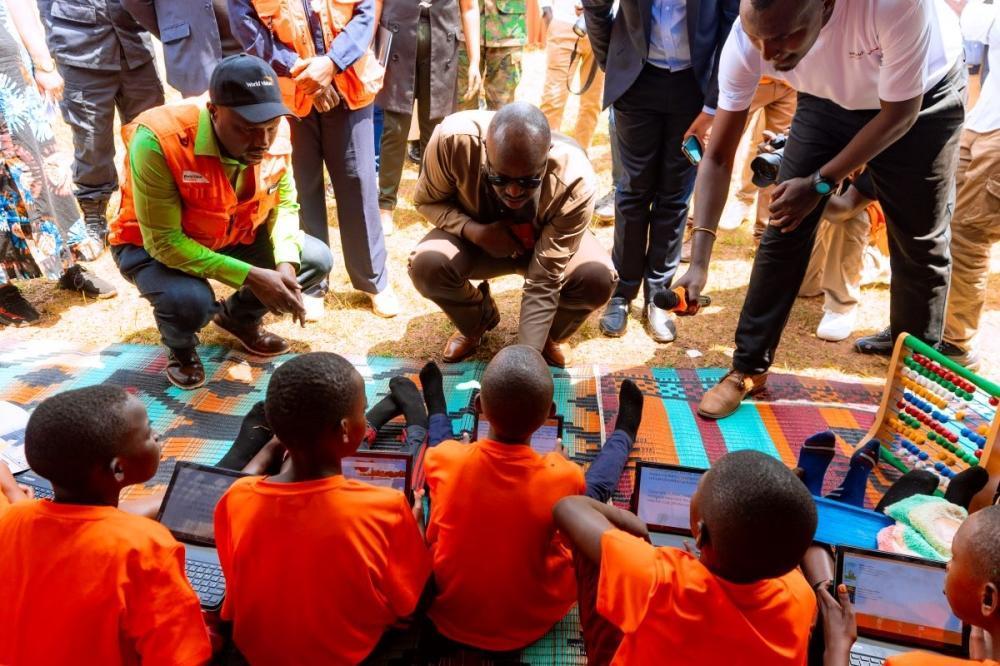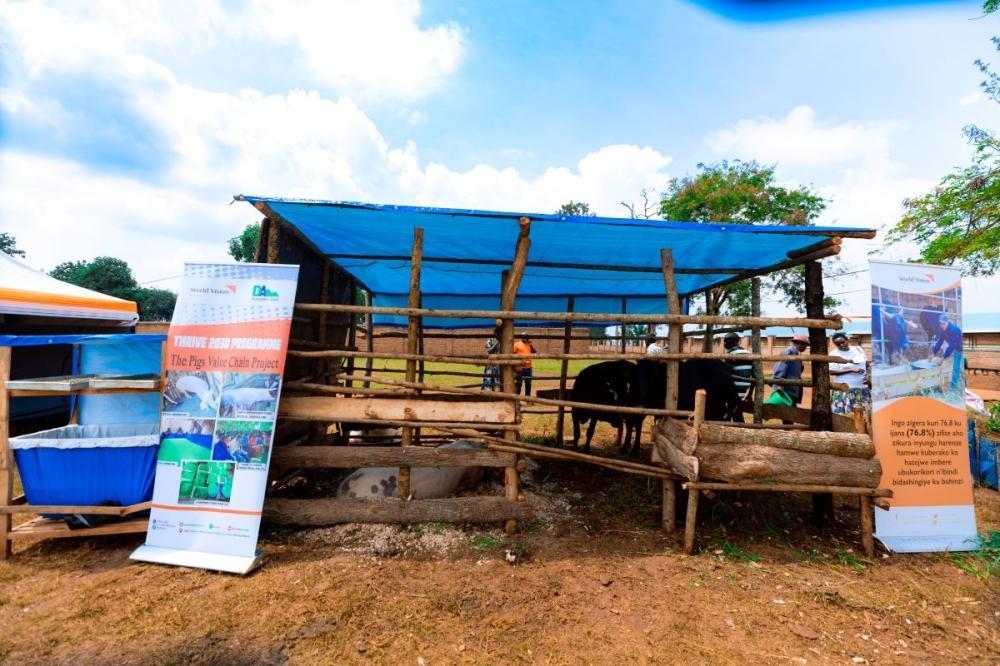Africa-Press – Rwanda. World Vision Rwanda, on August 27, handed over the Kiramuruzi Area Programme to local authorities after 17 years of improving health, water, and livelihoods in Eastern Province.
Launched in 2008 in partnership with Gatsibo District, and largely funded by World Vision – Japan, the programme has directly benefited around 40,000 people across 38 villages, including more than 15,600 children.
In health, the initiative advanced maternal and child services, constructed health posts, and trained 216 community health workers to screen children under five for malnutrition. In water and sanitation, it built three new supply systems and rehabilitated one, improving access to clean water for 7,300 households, six schools, and one health centre.
World Vision Rwanda’s National Director Pauline Okumu hands over the programme to the district on Thursday, August 28. Photos by Emmanuel Nkangura
Livelihoods were strengthened through Farmer Field Schools, agricultural inputs, poultry and livestock projects, and Savings for Transformation (S4T) groups. Assessments show that households savings in formal institutions rose from 21.1 per cent to 70 per cent.
Innocent Nzabakurana, Director of Gakenke Health Centre, which oversees the Nyabisindu health post, highlighted the impact of the new health post constructed through Kiramuruzi Area Programme.
“We serve over 50,000 people, but the Nyabisindu health post built by World Vision has helped reduce the doctor-to-patient ratio. It also shortened the 15-kilometre journeys many residents made to seek treatment. In addition, 216 community health workers have been trained to screen children under five for malnutrition,” he said.
Afisa Mukabihoyiki, a mother of four, is one of the beneficiaries of the project gives the testimony.
Afisa Mukabihoyiki, a mother of four, is one of the beneficiaries of the project. She recalled that before the intervention, she lived in a grass-thatched house, in an apiary and had no permanent home. Speaking at the project’s closure, she said her life has since changed. She now owns a house.
“Through the self-reliance training we received from World Vision and a per diem of Rwf 15,000, I was able to buy a goat, which later enabled me to purchase a cow,” she explained. “I also started vegetable farming and now supply produce to five schools. My children have been able to attend school, and my eldest son pursued TVET studies—he is now working as a motorcyclist in Kigali.”
Mukabihoyiki has also expanded into poultry farming. On August 27, she said she was expecting a delivery of 200 hens from a supplier to restock her farm.
Eastern Province Governor Pudence Rubingisa (c) said that the programme worked in 38 villages, directly impacting around 40,000 people.
Eastern Province Governor Pudence Rubingisa said that the programme worked in 38 villages, directly impacting around 40,000 people. Achievements include the expansion of water infrastructure, which enhanced hygiene and sanitation, and increased household incomes through savings groups and access to financial services. World Vision also partnered with government to strengthen systems in health, education, and agriculture.
“When families live in peace, children are cared for, and communities progress, then success follows. World Vision has played a role in reducing poverty in Gatsibo, as reflected in improved living standards, I urge you to endorse responsibility in taking care of the achievements for sustainable results,” he said.
World Vision Rwanda’s National Director Pauline Okumu delivers remarks during the handover ceremony.
World Vision Rwanda’s National Director Pauline Okumu said the handover marks a transition.
“This is not an end, but a handover of responsibilities to local authorities and communities. Every water system we built involved 40 per cent support from the Government of Rwanda and 60 per cent from World Vision. The progress we celebrate today is thanks to this partnership. While we close Kiramuruzi AP, we have already launched the Humure Programme in the same area. This demonstrates that when communities, government, and partners work together, transformation is both possible and sustainable.”
The programme’s final evaluation shows progress in strengthening household resilience, reducing food insecurity, and improving access to financial services. Household food security rose from 29 per cent at baseline to 70 per cent at endline, while the share of families with reliable savings nearly tripled. Similarly, the proportion of households able to rely on alternative sources of income during shocks increased, reflecting improved economic stability.
Children who benefited from the programme.
In health, the initiative advanced maternal and child services, constructed health posts, and trained 216 community health workers to screen children under five for malnutrition.
The programme has directly benefited around 40,000 people across 38 villages, including more than 15,600 children.
For More News And Analysis About Rwanda Follow Africa-Press

